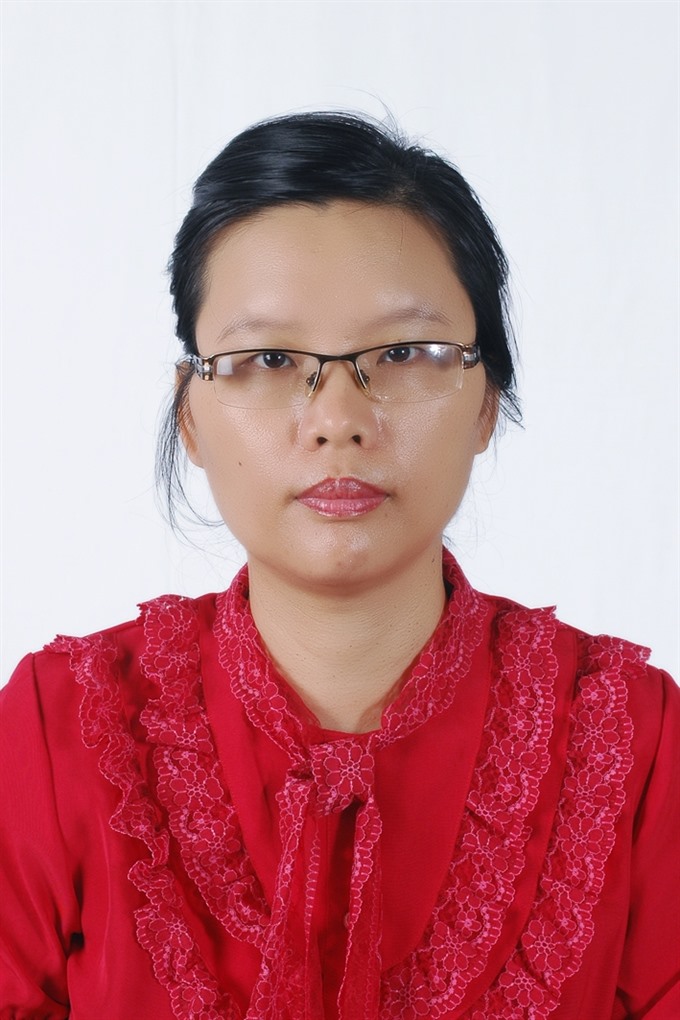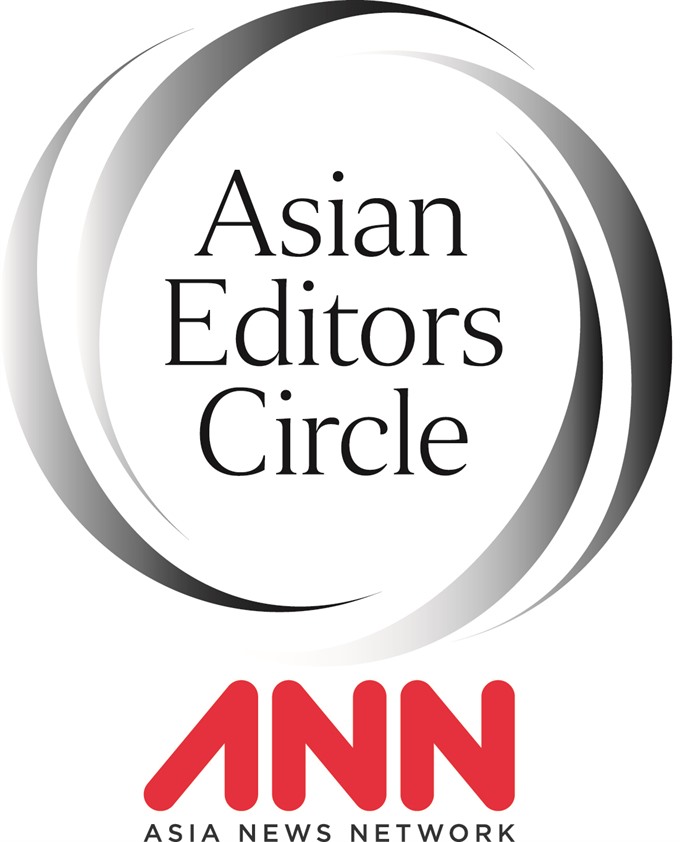  |
| Trinh Thanh Thuy, Editor in Chief of Viet Nam News |
Viet Nam News
While talks about The Fourth Industrial Revolution, smart cities and digital connection become trendy, Trinh Thanh Thuy suggests that we should make our existing communities smart first to ensure no one is left behind.
People are talking industry 4.0 and 5.0, and of high flying, but in these efforts to build a smart digital environment a serious lack of attention is being paid to those on the ground, or more accurately, lack of orientation and measures for improving the life of those classified as poor and destitute.
Even last week with the adoption of the ASEAN Smart Cities Framework by ASEAN leaders in Singapore, although it is quite comprehensive with beautiful concepts and promised “that no one is left behind”, the focus is mainly on the “urban centres”.
Meanwhile at the Asia Pacific Economic Cooperation (APEC) meeting in Papua New Guinea with the theme “Harnessing Inclusive Opportunities, Embracing the Digital Future”, Prime Minister of Malaysia, Mahathir Bin Mohamad, warned the transition from old to new technology such as the digitalisation of the working environment, increases in robotics and artificial intelligence, data analytics and the advent of other technologies that affect the way people normally do business, was causing disruptions as skilled and unskilled workers would become less important and irrelevant in the work force.
The world has become more connected and convenient than ever with the internet, the web, Google, Facebook, Instagram and similar networking tools and applications, and digital and technological innovations are believed to be able to transform the world.
But half the world’s population are not connected to the internet, according to the 2018 Global Digital suite of reports from We Are Social and Hootsuite , and will not necessarily benefit from these digital innovations .
More and more we are seeing fake news, scams, hateful speeches, accusations of social media being taken advantage of by foreign influencers for political purpose, and governments are attempting to “regulate” social media, which many, including my ANN colleague Cod Satrusayang, fear will infringe on freedom of speech and abuse of power.
Most recently, French president Emmanuel Macron announced that regulators from France would be allowed access to study how Facebook moderate hate speeches on its platform.
Into their own hands
But why are governments chasing corporate service providers on the internet and social media?
Why don’t they think outside of the box, and take matters into their own hands?
Tech giants have brought so many benefits to users, mostly “free”. Almost everything we need is now readily available online: making friends and sharing with Facebook, posting with Gmail, searching with Google, Baidu, buying and selling with Amazon, travelling with Tripadvisor, staying with Airbnb, and so on. Naturally most people subscribe to these services because they can benefit from these applications.
Why can’t governments do the same, invest public money on innovations that bring greater benefits to citizens, create a reliable digital platform on which people can live, work, create, do business and even safely entertain, and provide services that are ideally free or at a lowest possible affordable cost?
Vietnamese Deputy Prime Minister Vu Duc Dam recently said at an international conference held in Binh Duong Province that building smart cities had become increasingly affordable with the use of advanced technology, but that smart cities must be built according to the conditions of each country.
In Viet Nam, many smart city models faced huge challenges due to a lack of know-how, experience and highly skilled human resources, he said.
I wholeheartedly agree with the deputy prime minister and believe the situation is the same in many other developing countries, not to mention the task often involves huge investments for infrastructure renovation.
Then why not learn from those tech giants or cooperate with them to start building “soft” smart communities with the existing social structure and the technological means we have?
And why a platform supported by governments? Because the cost of applying state-of-the-art innovations globally will be out of reach for most small companies and individuals.
In this article I take courage to sketch a model of smart communities I wish to see for Governments and developers to consider.
Trust, reliability and inclusivity
What is lacking in the online environment now is trust, reliability and inclusivity.
Here we have a strong tool that can address the issue: blockchain.
David Lang, chief product officer of Infinity Blockchain Labs, once said: “In the near future people will use blockchain technology like the internet and we can imagine that each company will build its own trustworthy network based on blockchain technology and then connect them together.”
Several Vietnamese tech giants including Viettel and FPT have succeeded in applying blockchain to services.
Taiwanese smartphone maker HTC has offered a blockchain phone with shipping planned from December. Several others, including Switzerland-based start-up Sirin Lab, Chinese handset makers including Lenovo Group and Sichuan Changhong Electric and Indonesia-based start-up Pundi X have announced similar plans.
This makes the application of blockchain to create “trustworthy networks” more feasible than ever, not only among companies but all types of communities.
Just one important note:
Everyone of us needs space for creation, for dreams, for jokes, friendly boasting, fiction, entertainment and so on, things which need not always be true, but that has always been the way of life.
The virtual world reflects real life so to ensure creativity, freedom of thought and individual privacy there should be separate systems/networks: one type for real business/administration and the other for “fiction”.
But once one wants to be trustworthy or wants to check the reliability of something one can always refer to the former.
Loosening bonds offline
More worrying is the current loosening bonds among members of the society in the real life when they immerse themselves in the virtual world.
Something is missing with internet connection. Sentimental feelings you get when spending actually time talking to or being with someone vanishes.
Sure the internet, and social media especially, is great for connecting to people you wouldn’t normally see and it makes the world a smaller place, but the so called “personal touch” is in danger of disappearing.
What if your grandparents are frail and do not know how to surf the net, use digital applications or refuse to use Facebook as they fear losing control of their time, or being conned on the net?
 |
| Always loving you: An elderly couple in Son Dong Village, Ha Noi. Online exchange cannot replace the so called "personal touch". VNS Photo Viet Thanh |
Despite smart homes, smart cities, the virtual living environment cannot totally replace the real social bonds between humans, the physical and material world.
Why don’t we make full use of the existing communal relations, groups, structures, helping them form various types of smart communities? I would call them “cell smart communities”. Although I understand the pioneering role of smart urban centres, transformation from existing communities/structures into smart ones will probably be less disruptive.
Currently there is a serious lack of a strong and reliable connection between the virtual world and the physical world. There are a lot of instances where people are living a dual life – online and offline – with no connection between them.
It is not a must that the two have to be connected, but if connected, verified and acknowledged by the relevant communities then there will be much less cheating.
People will have incentives to behave better, good people or good deeds will be duly encouraged and promoted, bad people or behaviours will be traced and discredited, trust among human beings, which is being eroded day by day, will be enhanced, people will be more responsible for their own actions and their community.
If every piece of information is virtually checked this way by the smart community at the source, it is likely to be more accurate, hence less need for “management” and therefore much “freer”. Actually this is also the way peer reviewing is working for scientists.
If success stories and failure lessons are all verified and spread freely, there are less chances for lies or fake news.
Blockchain technology should be applied in ways that should not only enable and enforce top-down regulation but also the other way round, avoiding asymmetric information. That will mean both the citizens and the authorities will have to behave responsibly as the system ensures transparency. This will help get rid of corruption.
Communities can choose to be “fiction” or “reliable” by adopting/not adopting the mechanism. Smart communities “talk” or exchange information to each other via accepted protocol. They need not develop in uniform, each can have a different model and structure, except for the agreed way they “talk” to each other, just like the various applications we now find on the internet.
Technological means such as the internet, blockchains and any innovations that will be made will connect the “cell smart communities” forming a smart ecosystem.
These connections besides helping the communities and its members communicate with each other could also help people who might have things to exchange, such as labour, money, goods, goodwill and even volunteering initiatives to find those who need exactly that, verified and certified.
The nature of this kind of communication will aid inclusive development, allowing anyone who is willing to contribute or work can do what he/she wish without any conditions, and being credited for that (by blockchain technology).
This smart ecosystem should allow people/communities to be credited and rated for all they have done by their peers and partners in the course, and immediately find out the resources to fill the gaps if there are, correcting itself and evolving all the time, no need for five year or ten year reviews or restructuring.
This model can be developed in each country and connected worldwide. The world is already connected, albeit patchily, it should remain connected, but improved by the formation of “cell smart communities”. These could be a locality (village, commune, district, provinces or even nations), professional groups (scientists, lawyers, artists) or simply groups of likeminded people (religious groups, NGOs).
We already have communities that are being dissipated by modern reclusive lifestyle. Proof can be found everywhere with the rising number of suicides and elderly finding themselves growing old alone.
In Vietnam we still have very strong farmers’ associations, women’s association, youth associations and village chiefs. Besides there are a lot of professional associations and groups that can be strengthened again by forming “cell smart communities”, one does not exclude another. These existing components and the blockchain ensures information posted in the system is trustworthy. Imagine someone claiming to have a big house, which he doesn’t own, to win creditors’ trust? His neighbours will be the first ones to discredit him and set the record straight.
The cell communities can choose to share which information they want to share and keep others for themselves, but the shared information is always verified. This way top secrets/sovereignty won’t be compromised.
An isolated community, even self-sufficient, will not fully exploit all the benefits that a smart ecosystem can bring. But for smart communities to be able to connect or “talk” to each other worldwide and be used as an official tool for administration and business, common protocols or standards need to be adopted and their values officially recognised by governments.
Another advantage is this smart ecosystem is not too difficult to establish as we have the internet and can learn from innovations that are already made by giants such as Google, Facebook and Amazon, or blockchain, and models such as Grab, with just a few modifications and some more features.
Observing the non-observed economy
What is really needed is the commitment from Governments, communities and (credited) volunteers who will enable and ensure the inclusion of all members of the society to make full use of it.
How? Incentives, free apps, free beneficial features and convenience will help the system thrive and even generate values.
For example if everyone can open his/her shop on the platform free of charge, legally, and will not be taxed until its revenue reaches a threshold double the tax threshold offline, endorsed by the government, it will be a big draw for start-ups. The government in compensation for a higher tax threshold will have a larger tax base as there are less evaders and the base will include the normally non-observed economic sector which should find the platform cheap and efficient.
Everyone looking for a job can easily look for an appropriate position without going through an intermediary and/or fear of being cheated by unscrupulous employees as the credit system is verified by blockchain technology.
Even those who have not found employment can do volunteer work to raise his/her credit in the meantime.
Some times it even helps those desperate, poor or cannot do business by allowing them to exchange their services, goods or materials with others or offer their services for free and gain some credit for later use or enhance their profile.
The involvement of a public administrator like governments is especially important to ensure the system receive impartial, timely funding for public benefits and to ensure revenues are fairly shared.
Of course all communities cannot be made smart with blockchain and other features at once, but we can flag those that have reached the smart standard (also meaning more trustworthy). The cell smart communities can be established one by one or on a large scale based on existing infrastructure, allowing the size of projects to be flexible depending on funding sources and the will of community members. The smart ecosystem, if deployed on a large scale, can become a reliable powerful tool for any sensible global campaign.
Here we can draw lessons from the operation of small credits for women by Grameen banks where the grassroots community can function effectively in the absent of formal credit institutions. Where formal institutions fail to reach, the grassroots people can compensate for their shortcomings. Checking and peer reviewing by local members can enhance trust.
Those who do not have the ability to use or somehow cannot access the system can be assisted or taken care of offline by other members of the “cell smart community”, whose assistance will be credited, so virtually they are still present in the smart ecosystem.
A cell-like structure will even help save energy when we apply blockchain technology as the information can be verified within a smaller smart community and then become eligible to share among cells without the need to be verified again by multiple users.
Costs and time for activities such as monitoring campaigning, planning, accounting, analysing can be reduced considerably.
For this scheme to work it needs meaningful input from scientists, managers, activists and developers, policy makers and participation of members of the society, but I believe it will help make our living environment online and offline less chaotic and more inclusive than it is.
While social media mostly engages users on a voluntary basis, a smart community that is reliable and trustworthy must become necessity for its members.
However prudence should be exerted in implementation to ensure members’ real and active participation in any such smart community to ensure the smart versions really benefit them and avoid investment becoming “white elephants”.
I may sound simplistic or utopian, but I believe all the technologies are already there or certainly within reach, for the building of such smart communities. Where there is a will, there is a way. VNS
OVietnam